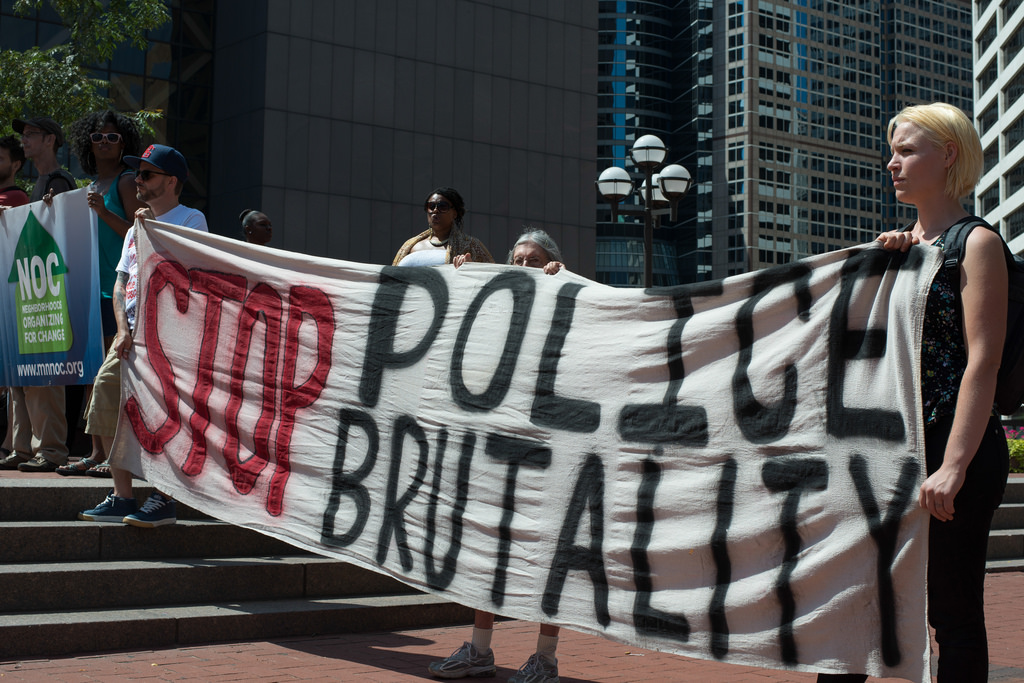Despite the social progress the United States has made, it still has many shortcomings. Amidst its many flaws, race is always one that persists–specifically regarding the treatment of black people. As long as black people are judged and disenfranchised because of the color of their skin, race will remained unresolved in the United States–a mass of prejudice, discrimination, and injustice that dates back centuries. But there is some progress that has been made and some racial tension in the country has been assuaged. After all, white Americans have showed their support for black people as they struggled with police brutality, the killings of black men, and the Black Lives Matter movement. But is the support shown enough? The term ally has often been used when referring to an individual who supports a marginalized group of people. Regarding the injustices done to African Americans, many white people have declared themselves avid supporters in their struggle. What form does this support come in and to what extent? What does it really mean to be an ally?
A year ago, DePauw University invited actress Jenna Fischer to speak as an Ubben Lecturer, serving as part of the Ubben Lecture series where notable public figures are invited to campus to interact with students and give a public address. Only about a week or two prior to Fischer’s arrival, a series of racially charged incidents occurred on DePauw’s campus. Racial slurs had been written on campus bathrooms and some large stones in DePauw’s nature park had been rearranged to spell out the n-word. Students of color on campus were infuriated and felt as if the campus administration was not doing enough to ensure the safety of students of color. The campus was filled with racial tension, and it finally erupted during Fischer’s lecture. In the middle of her address, one by one, students of color began standing up and declaring “we are not safe.” Eventually, the whole auditorium was filled with “we are not safe” chants. The protest left campus on high alert as tension between students rose. The protest also brought media coverage, with black students standing at the forefront.
Not too long after the Ubben Lecture protest, white students on DePauw’s campus began to show their support for students of color by taking to social media. All across Instagram and Facebook, white students declared that they stood in solidarity with students of color. On a tree in the middle of campus, white students also made a sign declaring that they stood with students of color. But even as white students expressed their support, was it enough? Did their actions embody allyship? Heather Cronk, co-director of Showing Up for Racial Justice, a network of activists that organizes white people to fight racial injustice, stresses that allyship, in terms of supporting black people, needs to consist of trusting black leadership to direct white allies in ways that are helpful to the movement. Cronk goes on to explain that allyship also means building deep relationships with black people and other people of color. The willingness to discuss controversial topics such as police brutality and educate oneself are other integral components to allyship as well. Simply being a physical presence also represents allyship. In photos of Black Lives Matter protests, white people can be seen marching with their black counterparts holding up the Black Lives Matter banner.
With allyship in regards to the Black Lives Matter movement in mind, did white students on DePauw’s campus really demonstrate allyship? Taking to social media and posting something on one’s Instagram story and hanging a banner in the middle of campus can have meaning and influence, but the extent of that meaning and influence is questionable. When people post to their Instagram and Facebook stories, they last for 24 hours and then disappear. It is likely that both the people who viewed the story and even the person who posted the content eventually forgets about it. Did the same situation happen when white students at DePauw posted about standing in solidarity with students of color? The social media posts are a form of support, but it could be argued that the white students who made them were simply trying to deflect any criticism from themselves. Perhaps the question of allyship comes down to the old saying “actions speak louder than words.” It’s so easy to declare one’s support, but how does one demonstrate it? What if the same white students on DePauw’s campus who declared their allyship passively watch as their friends use racial slurs and disregard the struggle of students of color? What if the same white students who showed support to students of color don’t understand the importance of recognizing the difference between Black Lives Matter and All Lives Matter? Is that still allyship?
If more white students on DePauw’s campus stood in black spaces and were willing to have tough conversations with students of color, would that be enough? Possibly. But the support that white students demonstrated through social media and the use of the banner cannot be ignored. Regardless of what the true definition of allyship is, perhaps it can be agreed that in order for racial issues to be resolved in the United States, black and white bodies must come together.


